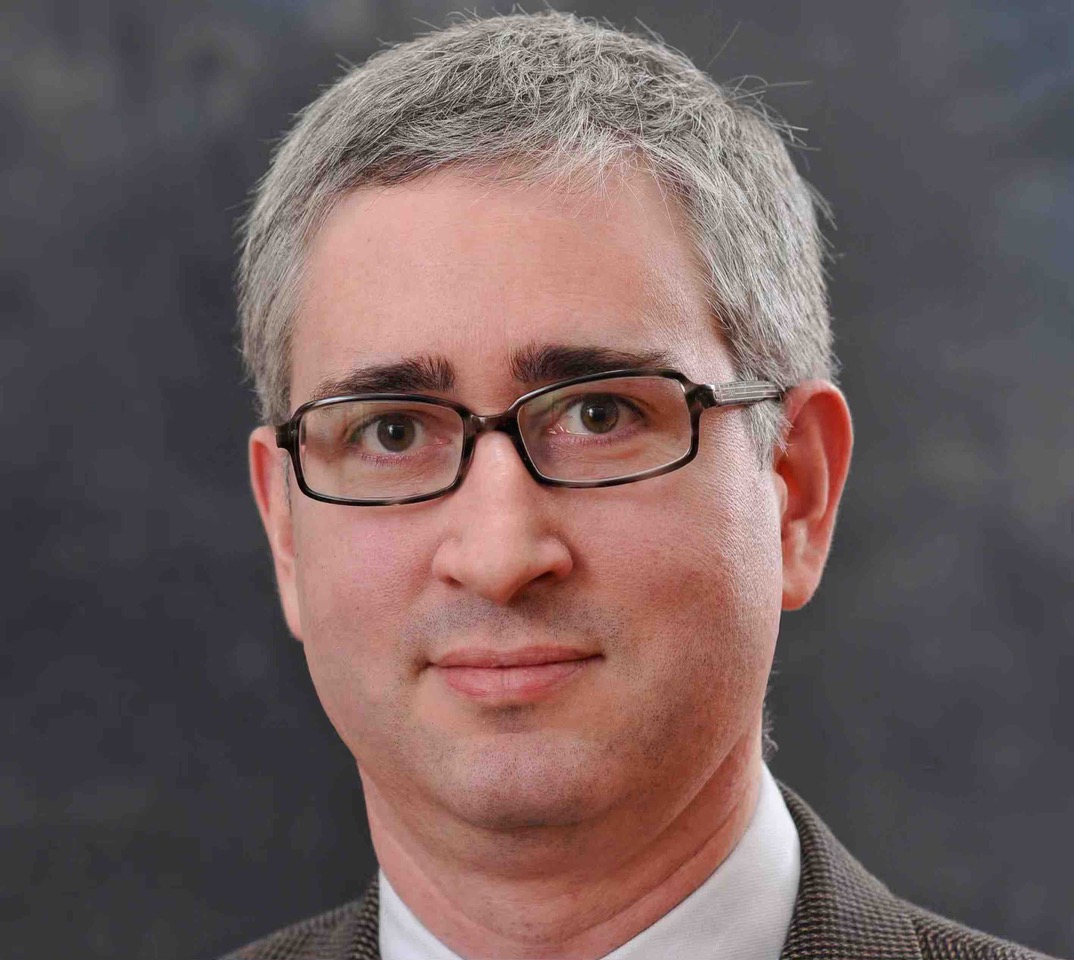
7th International Pension Research Association (IPRA) Conference
Date: 23 & 24 June 2022
The International Pension Research Association (IPRA) conference, co-hosted by IPRA in collaboration with its founding organisations, will take place in June 2022 at the OECD in Paris/France, and Online.
This is an IPRA Members and by invitation conference. If you have any enquiries, please contact us.
IPRA is a new international organisation established with the aim of improving the quality and impact of research on pensions and related ageing issues to optimise social and economic outcomes for an ageing world. Its inaugural executive committee comprises representatives of the ARC Centre of Excellence in Population Ageing Research (CEPAR, headquartered at UNSW Sydney), the International Organisation of Pension Supervisors (IOPS), Netspar at Tilburg University, the Pension Research Council at the Wharton School of the University of Pennsylvania, WTW, and the OECD.
To join IPRA, please sign up here. For more information, including upcoming IPRA events, visit iprassn.org.
Jump to:
Video Recording of Session 1:
WELCOME REMARKS
00:04 Hazel Bateman, President, International Pension Research Association, Deputy Director, CEPAR, UNSW Sydney
1:32 Flore-Anne Messy, Secretary General of the IOPS and Head of the Consumer Finance, Insurance and Pension OECD Division
Video Recording of Keynote Session:
KEYNOTE PRESENTATION
00:04 Chair: Mike Orszag (WTW)
00:19 The Multifaceted Effects of the Pandemic and Lockdown Measures on EU Citizens: Impact on Pensions - Axel Borsch-Supan (Munich Centre for the Economics of Aging (MEA) at the Max-Planck-Institute for Social Law and Social Policy, Germany)
Video Recording of Session 2:
SESSION 2: ADDRESSING GAPS IN PENSION COVERAGE
00:03 Chair: Hazel Bateman (CEPAR, UNSW Sydney)
1:04 Auto-Enrollment Retirement Plans for the People: Choices and Outcomes in OregonSaves Jonathan Reuter (Boston College, USA)
20:51 Choice Overload? Participation and Asset Allocation in French Employer-Sponsored Saving Plans Marie Brière (Amundi Institute, Paris-Dauphine University, France)
39:21 Addressing Gaps in Pension Coverage – Evidence from the UK’s Auto Enrolment Programme Will Sandbrook (Nest Insight, UK)
Video recording of Session 3:
SESSION 3: PENSION RISKS
00:03 Chair: John Piggott (CEPAR, UNSW Sydney)
00:44 The Impact of COVID-19 on Higher-Age Mortality - Andrew Cairns (Herriot Watt University, UK)
21:53 Macro Longevity Risk and the Choice between Annuity Products: Evidence from Denmark - Anne Balter (Tilburg University, the Netherlands)
40:46 How the Norwegian SWF Balances Ethics, ESG Risks, and Returns: Can this Approach Work for Other Institutional Investors? - Anita Margrethe Halvorssen (Global Legal Solutions, LLC, USA)
CLOSING REMARKS
58:42 Pablo Antolin, Principal Economist and Head of the Private Pensions Unit, Deputy Head Consumer Finance, Insurance, Pensions (CFIP) Division, OECD
1:01:01 Dariusz Stanko, Head of the International Organisation of Pension Supervisors (IOPS) Secretariat
|
Thursday 23 June 2022 Time zone in Paris, France (GMT+2) |
|||||||||||||||||||||||||||||||||||||||||||||||||||||||||
|
|||||||||||||||||||||||||||||||||||||||||||||||||||||||||
Abstracts and speaker bios
Has the Old Age Crisis been Averted?
Robert Palacios (The World Bank)
Abstract: In the Spring of 1992, Chief Economist Larry Summers commissioned the World Bank’s first major policy document on pensions. A team led by Estelle James worked for the next two years to produce ‘Averting the Old Age Crisis: Policies to Protect the Old and Promote Growth’. The 400+ page book criticized the predominant model of public pension provision, namely pay-as-you-go, defined benefit pension schemes, pointing to large unfunded liabilities as well as intra and intergenerational inequities. Where conditions were right, it favored privately managed, funded schemes to smooth consumption and social assistance to prevent poverty in old age. In the decades that followed, PAYGO schemes were scaled back through parametric reforms while dozens of countries adopted some variant of Averting’s second pillar with mixed results. Fiscal pressures and the financial crisis eventually ended or even reversed the spread of defined contribution schemes. Thirty years later, the focus has shifted to the failure of either model to reach most workers in developing countries due to persistent informality. Unless they address the coverage gap, many countries are still heading for an old age crisis. In this context, Averting’s most relevant message is to use separate instruments for consumption smoothing and redistribution.
 Robert Palacios is Lead Specialist for Pensions and Social Insurance and member of the Identification for Development (ID4D) and Government to Person payments cross-sectoral initiatives (G2Px). Between 1992-1994, he was a member of the research department team that produced the World Bank’s influential volume on international pension systems, “Averting the Old Age Crisis: Policies to Protect the Old and Promote Growth”. Since 1995, he has worked in more than thirty countries in Eastern Europe, Asia, Latin America and Africa. His publications include articles and books on old age poverty, health insurance and a wide range of pension policy issues. During the last decade, he has focused on implementation issues including digital identification and payments. He is currently working in a number of East Asian countries in the context of the social protection response to the COVID-19 pandemic.
Robert Palacios is Lead Specialist for Pensions and Social Insurance and member of the Identification for Development (ID4D) and Government to Person payments cross-sectoral initiatives (G2Px). Between 1992-1994, he was a member of the research department team that produced the World Bank’s influential volume on international pension systems, “Averting the Old Age Crisis: Policies to Protect the Old and Promote Growth”. Since 1995, he has worked in more than thirty countries in Eastern Europe, Asia, Latin America and Africa. His publications include articles and books on old age poverty, health insurance and a wide range of pension policy issues. During the last decade, he has focused on implementation issues including digital identification and payments. He is currently working in a number of East Asian countries in the context of the social protection response to the COVID-19 pandemic.
The Implications of 'Averting the Old-Age Crisis' for Pension Systems in Central and Eastern Europe and What the Future Holds
Agnieszka Chłoń-Domińczak (Warsaw School of Economics, Poland)
Abstract: Between the late 1990s and the first decade of the current century, many CEE countries implemented ambitious multi-pillar pension reforms, as a step forward from inherited socialist pension systems that were facing crisis due to the population ageing. The implementation of these reforms revealed many challenges related to the capacity of institutions and financial markets. The accession to the European Union shifted the perspective of institutional reforms. The 2008 crisis triggered a wave of decisions to reverse the reforms, including most importantly their funded components. As a result, many countries face an increasing lack of trust in pension systems and governments. Population ageing and reduced trust in pension systems and institutions mean pension systems face many problems. These include for example failure of the auto-enrollment scheme in Poland, or difficulties to raise retirement ages. In the future, the reliance on traditional contributory-based systems is further challenge of the new world of work and the gig economy. Therefore, the question of “averting the old-age crisis” still remains.
D r hab., Prof. SGH Agnieszka Chłoń-Domińczak is Vice-Rector for Science and Director of the Institute of Statistics and Demography at SGH Warsaw School of Economics. Member of the Committee on Demographic Studies of the Polish Academy of Sciences, and leader of the Polish research group at SHARE 50+ (Survey of Health, Ageing and Retirement in Europe). In 2008–2009, she served as an undersecretary of state in the Polish Ministry of Labour and Social Policy; she was also a member of the Supervisory Board of the Polish Social Insurance Institution (ZUS) and a member of the Polish Financial Supervision Authority. In 2007–2009, she was a Vice Chair of the Social Protection Committee (SPC) of the Council of the EU. In 2010–2017, she managed projects at the Educational Research Institute (IBE) in preparation of the implementation of the Polish Qualifications Framework. Her areas of specialisation include demography, pension systems, the labour market, social policy, health and education.
r hab., Prof. SGH Agnieszka Chłoń-Domińczak is Vice-Rector for Science and Director of the Institute of Statistics and Demography at SGH Warsaw School of Economics. Member of the Committee on Demographic Studies of the Polish Academy of Sciences, and leader of the Polish research group at SHARE 50+ (Survey of Health, Ageing and Retirement in Europe). In 2008–2009, she served as an undersecretary of state in the Polish Ministry of Labour and Social Policy; she was also a member of the Supervisory Board of the Polish Social Insurance Institution (ZUS) and a member of the Polish Financial Supervision Authority. In 2007–2009, she was a Vice Chair of the Social Protection Committee (SPC) of the Council of the EU. In 2010–2017, she managed projects at the Educational Research Institute (IBE) in preparation of the implementation of the Polish Qualifications Framework. Her areas of specialisation include demography, pension systems, the labour market, social policy, health and education.
Shaping Retirement Incomes: The Next 30 Years
John Piggott (CEPAR, UNSW Sydney, Australia)
Abstract: This presentation will review what the gaps are in pension systems around the world, and ask how future innovation might address these shortfalls, and improve retirement incomes for the upcoming generation. It will take account of likely future developments in labour markets; in national growth; and in demographics. It will partly focus on the new opportunities for developments in retirement provision afforded by innovations in artificial intelligence and in IT technology such as smart phones. It will also address issues related to intra and inter-generational equity, and relatedly, forms of governance necessary to facilitate security in long term contractual saving and investment.

John Piggott AO FASSA is Director of the Australian Research Council Centre of Excellence in Population Ageing Research (CEPAR) at the University of New South Wales, where he is Scientia Professor of Economics. A former Australian Professorial Fellow, he has published widely on issues in retirement and pension economics and finance; and in public finance more generally; his research has appeared in the leading international economics and actuarial academic journals.
John worked with the Japanese government for nearly a decade from 1999 on pension and population ageing issues. From 2008-2010 he was Visiting Scholar at the Wharton School of Business, and in 2018, was awarded a Rockefeller Residency to undertake research into ageing and inequality in Asia.
In 2019, he was appointed co-chair of the Think20 (T20) Task Force on Aging Population during Japan’s G20 Presidency and is currently a Commissioner on the US National Academy of Medicine’s International Commission on Healthy Longevity. He jointly led the establishment of the International Pension Research Association (IPRA) which was launched at the OECD in Paris in 2019. At a national level, he was a member of both the Henry Tax Review (2008-9) and the Australian Ministerial Superannuation Advisory Committee for 5 years from 2007.
The Multifaceted Effects of the Pandemic and Lockdown Measures on EU Citizens: Impact on Pensions
Axel Borsch-Supan (Munich Centre for the Economics of Aging (MEA) at the Max-Planck-Institute for Social Law and Social Policy, Germany)
Abstract: The presentation will present results from the SHARE-COVID19 project, which studies the non-intended consequences of the epidemic control decisions, among them the largest recession since WWII; the interruption of mobility, one of the basic rights of European citizens; and severe side effects on health since people avoid seeking medical treatment in fear of infection.
SHARE, the Survey of Health, Ageing and Retirement in Europe, is a transdisciplinary and international survey to measure health, economic and social living conditions of the European population aged 50 or older. This population group has the highest risk of harm due to a COVID-19 infection. The SHARE base panel comprises about 480,000 interviews in all 27 EU member states, Switzerland and Israel, with observations every two years since 2004, and two additional surveys in 2020 and 2021 during the pandemic.
Since the pandemic’s severity and the epidemic control decisions have been very different across EU Member States, the SHARE-COVID19 project aims to learn systematically how well healthcare and social systems have responded to the current pandemic and which lessons should be drawn for the future.
 Professor Börsch-Supan is Director of the Munich Center for the Economics of Aging, Max Planck Institute for Law and Social Policy, Munich. Professor Börsch-Supan studied economics and mathematics in Munich and Bonn and received a doctorate in economics from MIT (Cambridge, USA) in 1984. After working as an assistant professor of public policy at Harvard University (1984-1987) and as professor of economic theory at the University of Dortmund (1987-1989) he was professor of macroeconomics and economic policy at the University of Mannheim (1989-2011). In his role as director of the Max Planck Institute for Social Law and Social Policy in Munich, he is heading the Munich Center for the Economics of Aging (MEA) since 2011. Professor Börsch-Supan is a full member of the Berlin-Brandenburg Academy of Sciences and German National Academy of Sciences Leopoldina and a corresponding member of the Austrian Academy of Sciences. He also coordinates the Survey of Health, Ageing and Retirement in Europe (SHARE).
Professor Börsch-Supan is Director of the Munich Center for the Economics of Aging, Max Planck Institute for Law and Social Policy, Munich. Professor Börsch-Supan studied economics and mathematics in Munich and Bonn and received a doctorate in economics from MIT (Cambridge, USA) in 1984. After working as an assistant professor of public policy at Harvard University (1984-1987) and as professor of economic theory at the University of Dortmund (1987-1989) he was professor of macroeconomics and economic policy at the University of Mannheim (1989-2011). In his role as director of the Max Planck Institute for Social Law and Social Policy in Munich, he is heading the Munich Center for the Economics of Aging (MEA) since 2011. Professor Börsch-Supan is a full member of the Berlin-Brandenburg Academy of Sciences and German National Academy of Sciences Leopoldina and a corresponding member of the Austrian Academy of Sciences. He also coordinates the Survey of Health, Ageing and Retirement in Europe (SHARE).
Professor Börsch-Supan is a member of the Council of Advisors to the German Economics Ministry (chair 2004-08), a member of the German federal governments’ Expert Group on Demography and has served as a consultant to the European Commission, the World Bank, the OECD and several foreign governments. From June 2018 until March 2020 he was member of the Pension Reform Commission of the German Government „Verlässlicher Generationenvertrag”. In May 2020 he was appointed to the French “Commission d’experts sur les grands défis économiques” by the French President Emmanuel Macron.
Auto-Enrollment Retirement Plans for the People: Choices and Outcomes in OregonSaves
Jonathan Reuter (Boston College, USA)
Authors: John Chalmers, Olivia S. Mitchell, Jonathan Reuter, and Mingli Zhong
Abstract: Only about half of the U.S. private-sector workforce is covered by an employer-sponsored retirement plan. In response to this coverage gap, several U.S. states have introduced and mandated their own automatic-enrollment retirement savings plans. We analyze participation choices and the evolution of account balances in OregonSaves, the first such plan. We have five findings. First, OregonSaves successfully extends retirement plan coverage to employees in low-wage and high-turnover industries. Second, opt-out rates are higher than in traditional plans, and the most common reason for opting out is “I can’t afford to save.” Third, the vast majority of participants accept the default saving rate. Fourth, among those who do not opt out, dispersion in account balances is driven by dispersion in wages and the frequency of contributions. Fifth, among those who ever contribute, the effective annual savings rate is 2.5%; among the full sample of eligible employees, it is only 1.0%.
 Professor Jonathan Reuter is an Associate Professor of Finance in the Carroll School of Management at Boston College and Research Associate at the National Bureau of Economic Research. His research has been published in leading academic journals, including the Quarterly Journal of Economics, Journal of Finance, and Journal of Public Economics, and featured in media outlets including Forbes and The New York Times. His current research focuses on the behavior of retirement plan participants and the value of financial advice. He shared the 2013 TIAA-CREF Paul A. Samuelson Award for Outstanding Scholarly Writing on Lifelong Financial Security and received the Carroll School Coughlin Distinguished Teaching Award for the 2019-2020 academic year. He received his PhD in Economics from MIT.
Professor Jonathan Reuter is an Associate Professor of Finance in the Carroll School of Management at Boston College and Research Associate at the National Bureau of Economic Research. His research has been published in leading academic journals, including the Quarterly Journal of Economics, Journal of Finance, and Journal of Public Economics, and featured in media outlets including Forbes and The New York Times. His current research focuses on the behavior of retirement plan participants and the value of financial advice. He shared the 2013 TIAA-CREF Paul A. Samuelson Award for Outstanding Scholarly Writing on Lifelong Financial Security and received the Carroll School Coughlin Distinguished Teaching Award for the 2019-2020 academic year. He received his PhD in Economics from MIT.
Choice Overload? Participation and Asset Allocation in French Employer-Sponsored Saving Plans
Marie Brière (Amundi Institute, Paris-Dauphine University, France)
Abstract: This paper employs administrative data from one of the largest retirement plan providers in France to investigate the role of plan attributes in affecting employee participation and acceptance of the default investment option. The dataset includes information on the saving choices of 680,392 active employees at 1,610 firms. French employers have wide discretion in structuring employee saving plans. All plans must offer medium-term investments, which cannot be accessed for five years. Employers may also offer long-term investments that cannot be accessed until retirement. When plans include a long-term option, participation is lower than when the plan offers only more liquid medium-term investments. The presence of a long-term saving option also reduces the take-up of the plan’s default investment allocation, which must include a long-term component. This finding contrasts with previous evidence showing a demand for commitment savings in other settings. One interpretation of the results, consistent with the theory of choice overload, is that some employees are unwilling to forego the liquidity of the medium-term option but find it costly to make an active election when they opt out of the default, and therefore choose not to participate in the plan at all.
Marie Brière, PhD, is Head of the Investor Research Center at Amundi Institute. She is an adjunct professor at Paris Dauphine University and is a senior associate researcher with the Centre Emile Bernheim, Solvay Business School, Université Libre de Bruxelles. She conducts research on long term asset allocation and risk management to advise the strategic decisions of institutional investors and the design of investment solutions for individual investors. She is a member of several scientific councils, such as that of the European Capital Market Institute of CEPS, the European Savings Observatory, Inquire Europe and is a member of the expert group advising the ESMA Standing Committee on Financial Innovation. Her scientific articles have been published in academic journals, including the Journal of Banking and Finance, Journal of International Money and Finance, Journal of Portfolio Management, Financial Analyst Journal. She received the Markowitz award for her article with Zvi Bodie on "Sovereign Wealth and Risk Management: A Framework for Optimal Asset Allocation of Sovereign Wealth", published in the Journal of Investment Management. She holds a PhD in economics from the University Paris X and graduated from ENSAE.
Addressing Gaps in Pension Coverage – Evidence from the UK’s Auto Enrolment Programme
Will Sandbrook (NEST, UK)
Abstract: In 2012, the United Kingdom introduced a universal automatic enrolment mandate on employers, to offer a qualifying workplace pension scheme and to automatically enrol all eligible workers. This resulted in a massive increase in workplace pension participation over the subsequent 5 years. In this paper I will present evidence around pensions participation and behaviours in the UK auto enrolment system, including around how behaviours were affected by the global coronavirus pandemic, and will discuss some of the limitations in addressing coverage gaps through the ‘strong nudge’ of auto enrolment. I will also discuss remaining issues and gaps in coverage in the UK system and current thinking on how they might be addressed.
 Will Sandbrook is the Managing Director of Strategy, Analytics and Nest Insight at Nest. He has spent almost 20 years working in strategy, public policy, research and communications roles relating to personal finance and pensions, including working for the UK government on financial inclusion policy and the design and implementation of their landmark automatic enrolment programme. In 2008 he joined Nest, shortly after it was formed, and joined the Executive Team in 2010 as Strategy Director. In 2016 he oversaw the launch of the Nest Insight Unit, which he still leads alongside responsibility for Strategy, Data and Analytics for Nest more broadly. Will has published papers on pensions policy, workplace emergency saving and financial wellbeing in the AARP International Journal, the International Journal of Pensions Management and with the World Bank, among others, as well as authoring and contributing to a number of Nest Insight reports. He has spoken at policy and industry conferences and events in the UK, Europe, Asia and North America. Outside of Nest he has acted as an independent adviser and subject matter expert on research projects for Natcen and the Behavioural Insights Team and sits on the editorial advisory board for the Journal of Retirement. He previously served as a member of the International Centre for Pensions Management’s research committee.
Will Sandbrook is the Managing Director of Strategy, Analytics and Nest Insight at Nest. He has spent almost 20 years working in strategy, public policy, research and communications roles relating to personal finance and pensions, including working for the UK government on financial inclusion policy and the design and implementation of their landmark automatic enrolment programme. In 2008 he joined Nest, shortly after it was formed, and joined the Executive Team in 2010 as Strategy Director. In 2016 he oversaw the launch of the Nest Insight Unit, which he still leads alongside responsibility for Strategy, Data and Analytics for Nest more broadly. Will has published papers on pensions policy, workplace emergency saving and financial wellbeing in the AARP International Journal, the International Journal of Pensions Management and with the World Bank, among others, as well as authoring and contributing to a number of Nest Insight reports. He has spoken at policy and industry conferences and events in the UK, Europe, Asia and North America. Outside of Nest he has acted as an independent adviser and subject matter expert on research projects for Natcen and the Behavioural Insights Team and sits on the editorial advisory board for the Journal of Retirement. He previously served as a member of the International Centre for Pensions Management’s research committee.
The Impact of COVID-19 on Higher-Age Mortality
Andrew Cairns (Herriot Watt University, UK)
Abstract: We will review what the impact was of the pandemic on death rates above age 50. In particular:
• How did patterns of mortality change as the pandemic evolved?
• What was the impact of vaccination and new variants?
• How much variation was there between regions and socio-economic groups?
Data from 2020 allowed us to establish a strong link between underlying individual physical frailty and the mortality of those infected with Covid-19.
We will then look at how Covid-19 might impact on future mortality assumptions for pension plans: do these need significant or only modest adjustments from pre-pandemic levels? And what is the consequent impact on liabilities?
 Andrew Cairns is Professor of Actuarial Mathematics at Heriot-Watt University, Edinburgh and at the Maxwell Institute for Mathematical Sciences.
Andrew Cairns is Professor of Actuarial Mathematics at Heriot-Watt University, Edinburgh and at the Maxwell Institute for Mathematical Sciences.
In recent years his research has focused on the modelling of longevity risk: how this can be modelled, measured and priced, and how it can be transferred to the financial markets. Amongst his work in this field, he has developed a number of new and innovative stochastic mortality models.
He is an active member of the UK and international actuarial profession: he qualified as a Fellow of the Faculty of Actuaries in 1993; from 1996 to 2017 he was editor of the leading international actuarial journal ASTIN Bulletin - The Journal of the International Actuarial Association; and in 2005 he was elected as a corresponding member of the Swiss Association of Actuaries. From 2016-2020 he was Director of the Actuarial Research Centre of the Institute and Faculty of Actuaries.
His research has received several international prizes including the Halmstad Prize in 2008, the Society of Actuaries Annual Prize in 2009 and the Robert I. Mehr Award in 2016.
Macro Longevity Risk and the Choice between Annuity Products: Evidence from Denmark
Anne Balter (Tilburg University, the Netherlands)
Abstract:
We model the impact of unanticipated changes in forecasted life expectancies on guaranteed and unguaranteed pension products. We study historical deviations in mortality forecasts to examine how individuals' payout profiles during retirement differ between two types of products. Both products, which share similarities with typical DB and DC schemes, are exposed to financial risk, yet differ in their exposure towards macro longevity risk. We introduce a resampling scheme to address the stochasticity of future mortality rates and to quantify the empirical cost of macro longevity risk including both model uncertainty and parameter uncertainty. Using Danish individual-level data, we analyze the type of individuals who are more likely to give up their longevity hedge and analyze the actual compensations.
 Anne Balter is Associate Professor at the Department of Econometrics and Operations Research at Tilburg University in The Netherlands and a Senior Fellow of Netspar, the Network for Studies on Pensions, Aging and Retirement. She received her Ph.D. in econometrics from Maastricht University. She is an active researcher in the field of mathematical finance, with a particular focus on model uncertainty, robust investments, real options and pensions. She has provided useful insight in explaining and quantifying model ambiguity and its impact on financial investment and hedging strategies as well as on long term interest rates and she actively contributes to the Dutch pension debate. Her research papers have been published in leading journals such as Mathematics of Operations Research, European Journal of Operational Research, Journal of Empirical Finance and System & Control Letters. She teaches courses in finance both at the undergraduate and graduate level and supervises several Ph.D. students.
Anne Balter is Associate Professor at the Department of Econometrics and Operations Research at Tilburg University in The Netherlands and a Senior Fellow of Netspar, the Network for Studies on Pensions, Aging and Retirement. She received her Ph.D. in econometrics from Maastricht University. She is an active researcher in the field of mathematical finance, with a particular focus on model uncertainty, robust investments, real options and pensions. She has provided useful insight in explaining and quantifying model ambiguity and its impact on financial investment and hedging strategies as well as on long term interest rates and she actively contributes to the Dutch pension debate. Her research papers have been published in leading journals such as Mathematics of Operations Research, European Journal of Operational Research, Journal of Empirical Finance and System & Control Letters. She teaches courses in finance both at the undergraduate and graduate level and supervises several Ph.D. students.
How the Norwegian SWF Balances Ethics, ESG Risks, and Returns: Can this Approach Work for Other Institutional Investors?
Anita Margrethe Halvorssen (Global Legal Solutions, LLC, USA)
Abstract: As the largest sovereign wealth fund (SWF) in the world, the Norwegian SWF’s efforts to move in a more sustainable direction are often followed by other institutional investors. This chapter examines how the Norwegian SWF (officially, the Government Pension Fund – Global, or GPFG) has evolved into a responsible investor, balancing ethics, environment, social, and governance (ESG) risks with returns. The focus is mainly on its actions to address financial climate change risks. If the GPFG continues to evolve toward sustainable investment and acts on the latest International Energy Agency report that calls, among other things, for an end to all new fossil fuel production, it can serve as a good model for other institutional investors to deal with the challenge of climate change while remaining profitable.
 Anita Margrethe Halvorssen is the Director of Global Legal Solutions, LLC, was Adjunct Professor at University of Denver and Legal Counsel at the Norwegian Ministry of Climate and Environment. She has also done consulting work for the WHO. She has researched and published on the Norwegian Government Pension Fund Global (earlier called Norwegian Oil Fund). Halvorssen is a member of the International Law Association (ILA) committee on International Law and Sea Level Rise. She received her Master’s (LLM) and Doctor of The Science of Law (J.S.D.) from Columbia University (1988 and 1999, respectively) and earned her first law degree from the University of Oslo, Norway (1985).
Anita Margrethe Halvorssen is the Director of Global Legal Solutions, LLC, was Adjunct Professor at University of Denver and Legal Counsel at the Norwegian Ministry of Climate and Environment. She has also done consulting work for the WHO. She has researched and published on the Norwegian Government Pension Fund Global (earlier called Norwegian Oil Fund). Halvorssen is a member of the International Law Association (ILA) committee on International Law and Sea Level Rise. She received her Master’s (LLM) and Doctor of The Science of Law (J.S.D.) from Columbia University (1988 and 1999, respectively) and earned her first law degree from the University of Oslo, Norway (1985).
Supported by

